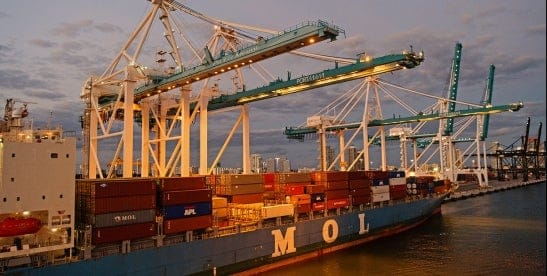SHIPS for America Act Aims to Revitalize US as Maritime Nation

On December 19, 2024, a significant piece of legislation was introduced in Congress. Senators Mark Kelly (D-Ariz.) and Todd Young (R-Ind.), along with Representatives Trent Kelly (R-Miss.) and John Garamendi (D-Calif.), unveiled the Shipbuilding and Harbor Infrastructure for Prosperity and Security (SHIPS) for America Act. This comprehensive act aims to revitalize the United States as a maritime nation. It focuses on establishing national oversight and consistent federal funding for the maritime industry. The legislation seeks to make US-flagged vessels competitive in international trade, rebuild the shipyard industrial base, and enhance the recruitment and training of mariners and shipyard workers. The Act spans 343 pages and includes specific proposals grouped into seven titles, each addressing critical aspects of maritime policy.
Key Provisions of the SHIPS Act
The SHIPS Act is structured into seven titles, each targeting different areas of the maritime industry. Title I focuses on oversight and accountability. It proposes the creation of a Maritime Security Advisor position at the White House level. This advisor will lead an interagency Maritime Security Board. The board’s role is to make comprehensive decisions that will implement a national maritime strategy. This oversight is crucial for ensuring that the United States can effectively manage its maritime resources and respond to global challenges.
Title II establishes a Maritime Security Trust Fund. This fund is designed to provide dedicated financial support for federal programs that enhance US maritime transportation. It will operate independently of the annual congressional appropriations process, similar to the Highway Trust Fund. This financial stability is essential for long-term planning and investment in the maritime sector.
Title III directs key government departments to maintain sufficient commercial and military sealift capabilities. The Secretaries of Transportation, Defense, and Homeland Security will work together to ensure that the US can meet its national defense and economic security objectives. The Maritime Security Board will leverage federal financial assistance programs to expand the fleet of US vessels, ensuring that the country has the necessary maritime resources to support its strategic goals.
Incentives for Shipbuilding and Workforce Development
Title IV of the SHIPS Act introduces the Strategic Commercial Fleet Program. This program aims to establish a fleet of 250 privately owned, US-built, US-flagged, and US-crewed vessels for international trade. It will provide annual support payments to offset the higher costs of constructing and operating US vessels compared to foreign alternatives. Additionally, Title IV increases the percentage of US government cargo that must be transported on US-flagged vessels from 50% to 100%. This move is expected to bolster the domestic shipbuilding industry and create more jobs.
Title V focuses on financial incentives for shipbuilding. It allows the US Maritime Administration (MARAD) to support the construction of US-built, US-flagged vessels. This includes investments in shipyards and facilities that produce critical components. The title also transforms MARAD’s Title XI program into a revolving loan fund, ensuring that funds generated from loans are reinvested into the program. Furthermore, it expands the Capital Construction Fund (CCF) program, allowing marine terminal operators to create accounts for replacing cargo-handling equipment, with restrictions on equipment from Chinese entities.
Title VI addresses workforce development by providing incentives for recruiting and retaining mariners and shipyard workers. It includes programs for public service loan forgiveness and educational assistance under the GI Bill. MARAD will conduct a targeted public recruiting campaign to promote maritime careers. A federal advisory committee will also be established to connect employers and educators, fostering collaboration in training future maritime professionals.
The bipartisan support for the SHIPS Act indicates a strong commitment to revitalizing America’s maritime industry. As Congress reconvenes, stakeholders anticipate a similar version of this legislation will be reintroduced in the first quarter of the year. The SHIPS Act represents a significant step toward strengthening the US maritime sector and ensuring its competitiveness on the global stage.
